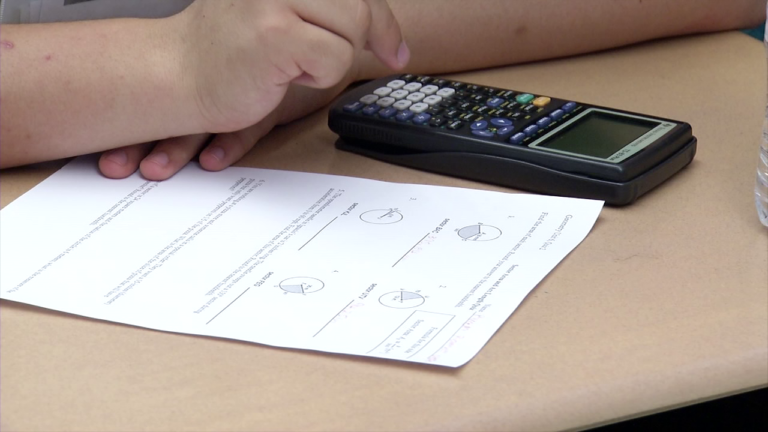An education on ESSA, shifting power to states

Schools all over the nation are now winding down the 2016-2017 school year. While students prepare for summer fun; however, educators won't have it as easy.
Right now, schools and school districts are getting ready for the implementation of the Every Student Succeeds Act. It affects every student and parent, teacher and administrator, in the U.S. public school system.
47 ABC got an education on the changes ahead to find out what this means for those living on Delmarva.
The Every Students Succeeds Act, often referred to by its acronym ESSA, was signed by Former President Barack Obama a year and a half ago.
It's not new, per se. It stems from the Elementary and Secondary Education Act of 1965, which over the past 50 or so years, held to it's civil rights foundation, seeking to ensure that every child, regardless of race, income, background, or where they live has the opportunity to obtain a high-quality education.
Every 5 years the ESEA is updated according to the changing needs of education. No Child Left Behind was the reauthorization of the act in 2001. ESSA is the reauthorization in 2015.
What's new this time around is the way it measures results. The Federal Government wants to know that the money they give to local schools is being used wisely. With NCLB, there was a huge emphasis on testing to measure student progress and hold schools accountable. State educational agencies would assess how schools were doing based on the results of statewide tests and one other academic indicator.
But what many educational leaders, administrators, teachers, and parents like about ESSA is that it gives power to the states, not the federal government, to set their own accountability models.
"I think it presented us with an opportunity to really move our school system forward," Doctor John Quinn, Chief Academic Officer of Worcester County Public Schools. "So, we're excited to see what it is that we're going to be held accountable for, and also moving our school district forward so that we can produce better graduates."
Dr. Donna Hanlin, Wicomico County Public Schools superintendent, tells 47 ABC she also likes the idea of states and school districts having more of a say in how student success is measured. "We need to be making decisions based upon what is best for our students locally. So, I think that is very encouraging."
ESSA supports a pretty significant move away from testing as the primary factor in measuring success. Of course, to the chagrin of students, testing isn't going anywhere. But many states have decided to reduce its percentage of the pie. For example, if a state makes tests 50% of the accountability plan, then the other 50% could be divvied up among non-academic factors; such as attendance, drop-out rates, discipline issues, graduation rates, as well as college and career readiness.
"A lot of the other factors that really give you a better insight into how successful a school and a district is rather than just that one test score," Dr. Dan Domenech, Executive Director of the AASA, the School Superintendent's Association. It's an advocacy group that collects and distributes information about what's going on on Capitol Hill concerning education.
Domenech says ESSA sets a cap, limiting the time students spend taking tests. Although it will continue to require annual tests in grades three through eight, and once in high school, the legislation takes steps to reduce standardized testing. Some of those steps include allowing states to audit and streamline to get rid of unnecessary assessments, as well as maintaining a parent's rights to "opt out" of certain state tests.
"We keep testing the kids as if that's going to make any difference," adds Dr. Domenech. "And it doesn't. What will make a difference is providing each child with the resources and the education that they need to be happy and to make progress."
We're told about 18 states submitted their accountability plans by April 3rd, the first of two deadlines. Delaware was one of those states.
The final chance to submit is September 18th, a deadline both Maryland and Virginia are now shooting for.
ESSA takes effect come September, but the state departments of education won't know exactly when those accountability plans will be approved. So, that means in the 2017-2018 school year individual schools and school districts will be working toward the goals outlined in the submitted plans, not knowing if they'll actually make it into the finalized plans.
"Yeah," admits Dr. Quinn, "we're a little bit behind the curve, you know, we would have loved to have had that in July as we prepare for next year."
Dr. Hanlin, "I'm not waiting to determine what are those measures for which we're going to be held accountable. I'm doing and working with staff to determine what we believe is best for our students."
For those who submitted in April, their plans are now out for peer review.
Delaware Department of Education Secretary, Dr. Susan Bunting tells 47 ABC the hope is that the U.S. Department of Education will have feedback on the plans by August, "There won't be any feedback for possibly 120 days. That's what the law states when we should receive feedback…within that time period."
Dr. Domenech, "Certainly, for the remaining that have not applied, and will apply in September, that will be a very significant hint as to whatever hint about what to do…or not to do."
A key stipulation for ESSA was that the state plans be developed with input from all stakeholders, including parents and the local communities. Over the past several months, education leaders in Delaware, Maryland, and Virginia tell 47 ABC they have all participated in massive outreach efforts; including, but not limited to, public forums, online surveys, and regional stakeholder meetings.
"There was great debate about various parts of the required sections," explains Dr. Bunting, about the outreach in Delaware. "I think, because of that, and because of the huge input from all types of stakeholders, you're going to find a plan that is maybe not perfect in some eyes, but it's really reflective of the citizens of Delaware's opinions about accountability, and what we should be doing with our federal monies."
Speaking with local and state education leaders, it's clear that a lot of hope is riding on the flexibility the new state plans will hopefully give school systems, as well as the individual schools, to innovate and make improvements.
"It gives districts the opportunity to focus on other areas that are really more important for these kids," Domenech tells 47 ABC. "It's not the test that keeps kids in school. It's not the test that gets kids to graduate from schools. Far from it."
But Dr. Domenech admits proposed funding cuts could hinder success under the implementation of this new law.
In the second part of this Special Report on the State of Education 47 ABC takes a look at federal, state, and local funding for public schools and what education leaders say will suffer if budget cuts continue as proposed.

